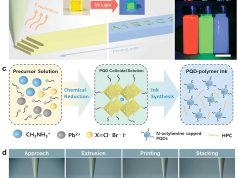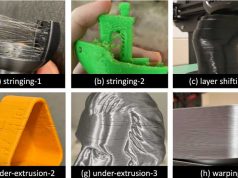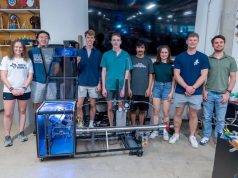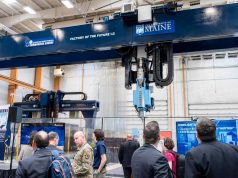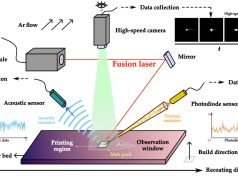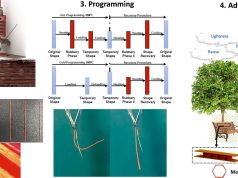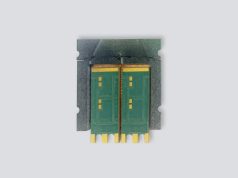Directed Energy Deposition is a manufacturing process in which materials are melted in a layer-by-layer process and deposited onto surfaces and into the desired shapes. Scientists at the Queen Mary University of London have now made a discovery in a study that could minimize material degradation in the process.
The study, which combines in-situ X-ray imaging with multiphysics modeling, identifies five mechanisms that contribute to pore formation, movement and growth:
- Intrusion of bubbles of gas atomized powder into the melt pool, with circular or lateral migration.
- Small bubbles can escape from the surface of the pool, merge into larger bubbles or be trapped by solidification fronts.
- Larger merged bubbles can remain in the pool for a long time, driven by the interface between solid and liquid material.
- The Marangoni surface shear stress overcomes the buoyancy force, which prevents larger bubbles from escaping.
- Once large bubbles reach critical sizes, they escape from the pool surface or become trapped in DED tracks.
These findings enable the development of strategies to minimize porosity, which could drive innovative regeneration and repair technologies.
“This knowledge is crucial for unlocking the full potential of DED. By minimising porosity, we can improve the mechanical properties of components, making DED a viable option for safety-critical applications ultimately leading to the production of stronger, safer, and more reliable components across various industries” said Dr Chinnapat Panwisawas, Senior Lecturer in Materials and Solid Mechanics at Queen Mary’s School of Engineering and Materials Science.
The study is the result of an international collaboration with institutions such as University College London, Research Complex at Harwell (UK), ESRF-The European Synchrotron (France), RMIT (Australia), Diamond Light Source (UK), Rolls Royce plc (UK) and Shimane University (Japan).
Subscribe to our Newsletter
3DPresso is a weekly newsletter that links to the most exciting global stories from the 3D printing and additive manufacturing industry.




